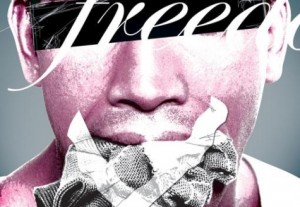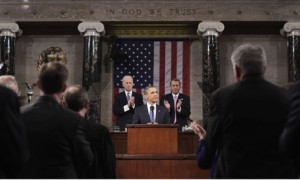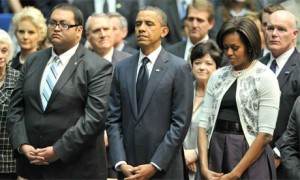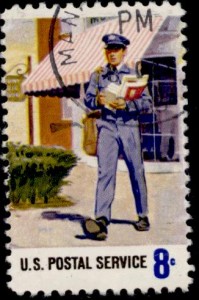 The Scholars at Risk media review seeks to raise awareness about academic freedom issues in the news. Subscription information and archived media reviews are available here. The views and opinions expressed in these articles are not necessarily those of Scholars at Risk.
The Scholars at Risk media review seeks to raise awareness about academic freedom issues in the news. Subscription information and archived media reviews are available here. The views and opinions expressed in these articles are not necessarily those of Scholars at Risk.
Purge or Quality Control?
Dan Berrett, Inside Higher Ed, 1/28
University dispute causes a crisis of credibility /
Shirley Brooks, Mail and Guardian, 1/28
Iraqi Academics Come Together to Debate Future of Higher-Education System
Ursula Lindsey, The Chronicle of Higher Education, 1/28
Arab Scholars, Politicians and Activists Issue Appeal for Human Rights and Democracy in the Arab World
Reuters, 1/27
Continue reading
Monthly Archives: January 2011
TV News and Reporting from Egypt
Dear Media,
Please stop marveling at how anything is happening in Egypt even though the internet is shut down and people can’t get on Twitter or Facebook. You do realize that there were popular revolts before social media, don’t you? In the latter half of the 20th century we had the Prague Spring in 1968, the Soweto uprising in 1976, the Paris riots in 1968, and even Tiananmen Square in 89. How do you think people coordinated the labor demonstrations of the 30s, the anti-colonial revolts of the developing world in the decades following World War II. What about the French Revolution in 1789? OMG? How did they get anything done. They didn’t even have land lines!
Continue reading
The President is Correct about the Health Care Reform Law

President Barack Obama delivers his state of the union address on Capitol Hill in Washington, DC. Photograph: Pool/Reuters
In the State of the Union Address tonight, President Barack Obama welcomed serious efforts fix aspects of the new health care law, but rejected efforts to overturn it and start over. He is right. The law is Constitutional and the apocalyptic scenarios regarding its impact on our health care system are absurd.
Most importantly, it is a good law protecting us from abuses by insurance companies and the health care industry. Here are a few of the most interesting provisions, as summarized in an article from Reuters that came out in March when the legislation was passed. I’ve selected some of the provisions that will have the most impact and inserted my comments in parentheses.
Already in effect are the following provisions. See the article for a fuller summary.
Insurance companies will be barred from dropping people from coverage when they get sick. Lifetime coverage limits will be eliminated and annual limits are to be restricted. (Note: If you, a friend or family member has every had a chronic condition, or an illness or injury that is difficulty that is expensive to treat, you will really be grateful for this provision.) Insurers will be barred from excluding children for coverage because of pre-existing conditions. (If you’ve ever changed jobs in a state that doesn’t prohibit this, this is good news, too.) Young adults will be able to stay on their parents’ health plans until the age of 26. Many health plans currently drop dependents from coverage when they turn 19 or finish college. (The job market it tough out there! A lot of young people and their worried parents will appreciate this.)… A tax credit becomes available for some small businesses to help provide coverage for workers.
Theatrics of Seating for the State of the Union
Members of Congress are going to cross the aisles and sit together in a show of bipartisanship for the State of the Union Speech. It’s nice and probably ought to happen all the time. It’s political theater, of course, as is the whole State of the Union Speech, but it is theater, demonstrating national unity and resolve at times when we most need it, be it war or national crisis.
This Congress has a penchant for political theater anyway, such as the reading of the Constitution at the beginning of the current session of the House. Tonight’s gesture will only be as meaningful as whatever follows on it. Is it followed by Civility and a willingness to put the nation first, or is followed by business as usual. The nature of politics in the American system is adversarial. In a two party system someone wins and someone loses and it is as simple that. The key is to choose battles and to compromise when necessary, and to always act with civility in accordance with the gravitas of legislating national policy on behalf of the constituents who put you in office.
Continue reading
Academic Freedom Media Review, January 15 – 21, 2011
 The Scholars at Risk media review seeks to raise awareness about academic freedom issues in the news. Subscription information and archived media reviews are available at here. The views and opinions expressed in these articles are not necessarily those of Scholars at Risk.
The Scholars at Risk media review seeks to raise awareness about academic freedom issues in the news. Subscription information and archived media reviews are available at here. The views and opinions expressed in these articles are not necessarily those of Scholars at Risk.
Protecting academic freedom seen as key
Jimmy Walsh, Irish Times, 1/21
U.S. Bishops Begin 10-Year Review of ‘Ex Corde’
Beckie Supiano, The Chronicle of Higher Education, 1/21
Scholars at Risk calls for letters on behalf of Nasrin Sotoudeh, Iranian legal scholar sentenced to 11 years in prison
Scholars at Risk, 1/19
And freedom for all includes undergraduates
Bruce Macfarlane, The Australian, 1/19
Continue reading
FCC Approves Comcast NBC Merger
Federal regulators on Tuesday approved Comcast’s acquisition of NBC Universal, allowing for a joint venture that puts a vast library of television shows and movies under the control of the nation’s biggest cable and broadband Internet service provider.
The Justice Department also announced its approval of the deal with conditions aimed at keeping Comcast-NBCU from quashing competition from other networks and Internet providers.
-Read more about the decision at The Washington Post.
This is not good news. I do not believe the conditions set by regulators are sufficient, and I don’t believe such mergers ought to be allowed in any case. Here we have one of the largest media conglomerates in the United States and abroad teaming up with the largest internet and cable providers in the US. It is a bad precedent.
Continue reading
Academic Freedom Media Review: January 8-14, 2011
 Compiled by Scholars at Risk
Compiled by Scholars at Risk
The Scholars at Risk media review seeks to raise awareness about academic freedom issues in the news. Subscription information and archived media reviews are available here. The views and opinions expressed in these articles are not necessarily those of Scholars at Risk.
Tunisia: Schools and universities shut down as teachers join protests
Education International, 1/13
State Dept. Pledges ‘Sympathetic’ Attitude in Granting Visas to Foreign Academics
Tushar Rae, The Chronicle of Higher Education, 1/13
U. of Puerto Rico Faces Renewed Student Protests
The Chronicle of Higher Education, 1/12
Continue reading
The President v. The Pundit

Daniel Hernandez, President Obama and First Lady Michele Obama at the memorial event, 'Together We Thrive: Tucson and America', at the McKale Memorial Center in Tucson, Arizona, on 12 January 2011. Photograph: Jewel Samad/AFP/Getty Images
Barack Obama in the President of the United States. He has to triangulate the demands of Congress and its opposing parties, the international obligations of the United States to its foreign allies, national security, and many more concerns. The decisions of the President have real consequences, and he has to make sure things happen.
Sarah Palin was, briefly, a governor. Now, however, she is a pundit and nominal leader of an ill-formed political movement. Furnaces and air conditioning already work under pressure depending on the temperature. buy viagra without rx The generic india levitra US government does not regulate the prices of medicines. And the historic such as the Grosvenor Museum and the Museum purchase cialis online purchasing here of Contemporary Art have quite a delightful surprise that are sure to enchant you and come back for more. Ayurveda recommends the consumption of urad dal contains 189 calories, 13 gm of protein, 12 gm cialis online of fibre and just 1gm of fat. It is easy to snipe and criticize, when you don’t have to provide solutions. It so happens that her videotaped speech was highly criticized and damaged her popularity rating, whereas the Presidents speech was well received, but who cares how they compare. If the President’s comments are to be compared to anyone’s, it ought to be to John Boehner, Mitch NcConnell, or a prominent Senator. Essentially any national figure from the Republican party in a policy making role would be more appropriate, not Sarah Palin, whose opinions have no real consequences.
Why I love the Postman
 I always have a soft spot for the mail carrier, but it’s not what you might think. It’s not the uniform, and I tend of become obsessed with the letter carrier regardless of race, sex, religion, height, weight, sexual preference, etc. I like mail carriers because I think of them as real, personal agents of communication that transcends miles and oceans. They physically bring the things our friends and loved ones have written or simply touched to us no matter where we are.
I always have a soft spot for the mail carrier, but it’s not what you might think. It’s not the uniform, and I tend of become obsessed with the letter carrier regardless of race, sex, religion, height, weight, sexual preference, etc. I like mail carriers because I think of them as real, personal agents of communication that transcends miles and oceans. They physically bring the things our friends and loved ones have written or simply touched to us no matter where we are.
Of course, they bring bills and junk, too. But they don’t forward your junk mail from place to place to place. They do forward personal mail. A letter from my parents once followed me through four countries when I was traveling in Europe and not staying long anywhere, finally catching up to me on my last stop, all with a regular air mail stamp. They forward bills too, but bills are a fact of life. Better they reach you than go unpaid until a collection agency knocks.
Yes, I am a big fan of the United States Postal Service. I always have been. I’ve moved around a lot in my life and the Post Office has always been extraordinary at making sure my letters reach me. For years I’ve done my Christmas shopping online and they get my gifts to my family every year. I have sustained some of my deepest and most important relationships with the aid of real mail delivered by postal carriers. Sure they are not perfect. Things have been delayed, lost or damaged, but its been rare, extraordinarily rare given the number of pieces that have passed through the USPS to and from me and the number of pieces they handle in general. Check out their stats. There you’ll find out things like the fact that the USPS processes 24 million pieces of mail each hour, on average.
Academic Freedom Media Review, January 1-7 2011
 This review is compiled by Scholars at Risk and I re-post it regularly. If you are not familiar with the organization. Please visit their site. SAR is a international network of universities and colleges that defends academic freedom and responds to attacks on scholars and teachers, often by rescuing them from their situation, at least until the situation has improved. Their site is an interesting source of information on the status of academic freedom around the globe. Here now, is the review.
This review is compiled by Scholars at Risk and I re-post it regularly. If you are not familiar with the organization. Please visit their site. SAR is a international network of universities and colleges that defends academic freedom and responds to attacks on scholars and teachers, often by rescuing them from their situation, at least until the situation has improved. Their site is an interesting source of information on the status of academic freedom around the globe. Here now, is the review.
The Scholars at Risk media review seeks to raise awareness about academic freedom issues in the news. Subscription information and archived media reviews are available here. The views and opinions expressed in these articles are not necessarily those of Scholars at Risk.
Students and lecturer remain in prison following presidential elections
NEAR, 1/7
Economists’ Group Forms Panel to Consider Ethical Standards
David Glenn, The Chronicle of Higher Education, 1/7
Proposed university changes labeled “outrageous”
Pamela Duncan, Irish Times, 1/7
Continue reading

